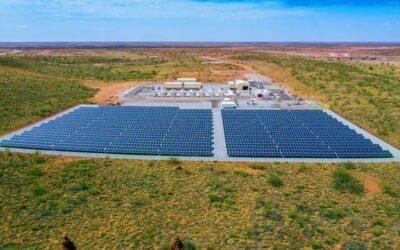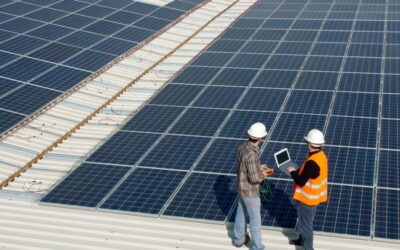Kempener: 'In the case of an island, the problems of voltage, weak grids and inefficient diesel generators all come together. Source: IRENA
Utilising renewable energy instead of traditional diesel generators on islands and in remote areas would bring “substantial socio-economic benefits”, according to a new report from the International Renewable Energy Agency (IRENA).
Separate IRENA assessments of Fiji, the Marshall Islands and Vanuatu found that using renewable resources such as solar, wind, geothermal, marine, biomass and biofuel could lower power generation costs, while improving access to energy and energy independence.
Enjoy 12 months of exclusive analysis
- Regular insight and analysis of the industry’s biggest developments
- In-depth interviews with the industry’s leading figures
- Annual digital subscription to the PV Tech Power journal
- Discounts on Solar Media’s portfolio of events, in-person and virtual
IRENA launched its technology roadmap for electricity storage in June, which identified renewables for islands and micro-grids for remote areas as a major priority due to these regions' vulnerability to the effects of climate change and the price spike issues related to reliance on fossil fuels.
Ruud Kempener, Technology Roadmap Analyst, IRENA Innovation and Technology Center, told PV Tech Storage today that the latest study on grid flexibility in the islands showed that their grid infrastructure has “certain limits” for integrating the intermittency of renewable energy sources.
He said that some developers “are offering utility-scale projects in solar and wind with a very high capacity and the lines are very weak so you get multiple issues.”
While there are many separate measures to overcome each individual issue, Kempener said that in the case of an island, the problems of voltage, weak grids and inefficient diesel generators all come together.
An interesting option
He added: “Storage can address each and every one of them – that is why storage is such an interesting option for these islands and also off-grid systems.”
Kempener also said the cost of generating electricity is extremely high in such remote areas. Even though storage is still a relatively expensive option, by combining it with renewables it can start to replace diesel generators.
Kempener highlighted four areas that international corporations can work on to help the energy transition on these islands:
Financing
Help develop local capabilities to maintain and operate storage systems and make economic use out of them.
Create a global database of best practice for these islands
provide guidance on the most appropriate tools to integrate renewable energy
Kempener also cited recent studies of Samoa, where it is clear that renewable generation is cheaper, but the utilities have no experience of integrating new energy sources.
He said: “Although, people want to put more solar and more wind into Samoa, the grid simply cannot take it without any additional reinforcement.”
IRENA’s latest study found that Vanuatu’s dependence on fossil fuels, despite abundant renewable resources, has been a barrier to socio-economic progress. The Island’s government has now created a National Energy Roadmap aiming to increase the share of renewables in the nation’s energy mix from 43% today to 63% by 2030.
The Marshall Islands, similarly relied on fossil fuels until a 2008 fuel price spike triggered an economic emergency and its government created its own National Energy Policy and Energy Action Plan, resulting in thousands of solar installations on households in the outer islands.
Fiji’s National Energy Policy found that it has potential to receive 100% of its energy from renewables by 2030, but for now it still faces energy security and price issues due to reliance on fossil fuel imports.
IRENA director-general Adnan Z. Amin said: “The development of local renewable resources in these island nations would decrease their dependency on fuel imports and reduce risks associated with oil price volatility.
"It has never been cheaper for small island states to reduce electricity costs, increase energy independence and improve energy access through the deployment of renewable energy."
Read Ruud Kempener of IRENA's recent discussion with PV Tech Storage of the agency's technology roadmap for electricity storage here.






